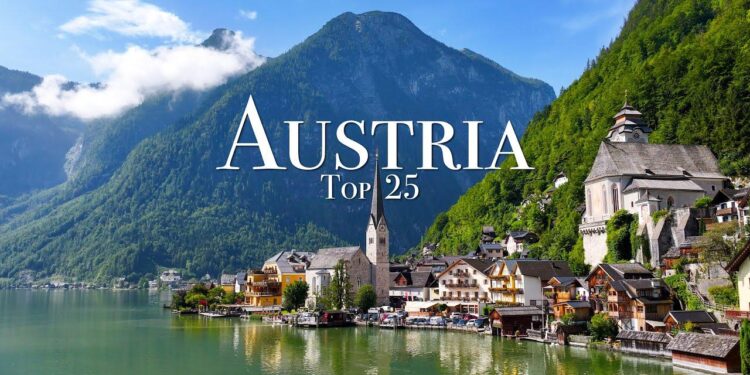Seventy years after Austria declared its permanent neutrality, the nation finds itself at a crossroads. Once celebrated as a cornerstone of its post-war identity and security policy, Austria’s neutrality is increasingly being questioned amid shifting geopolitical dynamics and rising regional tensions. As global power balances evolve and security challenges become more complex, the International Centre for Defence and Security examines whether Austria’s long-standing stance of neutrality remains viable – or if it requires a strategic reassessment to meet the demands of the 21st century.
Austria’s Historical Commitment to Neutrality in a Changing Europe
Since the signing of the Austrian State Treaty in 1955, Austria has steadfastly adhered to a policy of permanent neutrality, a principle enshrined in its constitution. This commitment emerged as a strategic response to Cold War divisions, positioning Austria as a bridge between Eastern and Western blocs. Over the decades, this stance not only shaped its foreign relations but also carved a unique identity within Europe-one characterized by diplomatic engagement without military entanglements. Neutrality allowed Austria to cultivate itself as a hub for international dialogue, hosting organizations like the OSCE and becoming a staunch advocate for peaceful conflict resolution.
However, the European landscape has undergone profound transformations since the Cold War, raising questions about neutrality’s contemporary relevance. Austria now navigates a continent marked by expanding security alliances, shifting power dynamics, and emergent threats such as cyber warfare and hybrid conflicts. While its neutral status grants diplomatic flexibility, critics argue it may limit Austria’s ability to participate fully in collective defense initiatives. The following table highlights key shifts influencing Austria’s position in recent decades:
| Era | Key Characteristics | Impact on Neutrality |
|---|---|---|
| 1950s-1980s | Cold War Bipolarity | Established neutrality as security guarantee |
| 1990s-2000s | Post-Cold War European Integration | Neutrality respected but increasingly questioned |
| 2010s-Present | Resurgent Geopolitical Tensions | Neutrality tested by collective security demands |
- Preservation of sovereignty: Austria’s neutrality is a symbol of its independence from major military alliances.
- Diplomatic leverage: The status provides a platform for mediation in international crises.
- Challenges ahead: Balancing neutrality with growing expectations for regional security cooperation.
Evaluating the Strategic Relevance of Neutrality Amid Emerging Security Threats
Austria’s traditional stance of neutrality, rooted deeply in the post-World War II order, faces unprecedented tests in today’s volatile security environment. The growing complexity of hybrid warfare, cyber threats, and the resurgence of great power competition have blurred the lines that once defined neutrality. While neutrality provided Austria with diplomatic maneuverability during the Cold War, its efficacy in deterring or mitigating emerging security risks is increasingly questioned. Experts argue that a rigid adherence to neutrality could limit Austria’s ability to respond proactively and collaborate effectively with key international security frameworks.
Several core factors now challenge the strategic value of maintaining neutrality:
- Alliance Pressures: Expectations from European Union and NATO partners for intelligence sharing and joint exercises.
- Technological Vulnerability: Increased exposure to cyber-attacks requiring coordinated defense responses.
- Geopolitical Shifts: Proximity to areas of intensified conflict and shifting alliances in Central and Eastern Europe.
Foresight into these challenges suggests a potential recalibration, where neutrality might transform from an absolute status to a more dynamic posture-one that balances sovereign decision-making with pragmatic engagement. Below is a concise comparison of Austria’s neutrality dimensions then and now:
| Aspect | During Cold War | Contemporary Context |
|---|---|---|
| Military Commitments | Non-alignment, no alliances | Selective cooperation on intelligence and security |
| Diplomatic Role | Mediator & peace promoter | Still mediator, but under pressure to pick sides |
| Threat Environment | State-centric, conventional threats | Hybrid warfare, cyber, terrorism |
Proposed Policy Shifts to Strengthen Austria’s Role in Regional Stability
Austria’s strategic posture calls for nuanced recalibration to ensure it remains a pivotal actor in maintaining regional security. One significant shift involves enhancing defense partnerships with neighboring countries while preserving its longstanding neutrality. By deepening intelligence sharing and joint training exercises under a framework that respects Austria’s non-aligned stance, the country can foster trust and resilience against emerging hybrid threats without compromising its identity.
Additionally, investment in cutting-edge cyber defense capabilities must be prioritized to counterbalance the evolving nature of conflicts. The following table summarizes proposed policy initiatives to strengthen Austria’s regional influence effectively:
| Policy Initiative | Key Focus | Expected Impact |
|---|---|---|
| Enhanced Regional Dialogue | Diplomatic engagement | Improved conflict prevention |
| Cybersecurity Investment | Technology & Infrastructure | Robust defense against digital threats |
| Joint Military Exercises | Interoperability | Strengthened military coordination |
| Humanitarian Missions Expansion | Soft power projection | Enhanced international credibility |
Concluding Remarks
As Austria marks 70 years of steadfast neutrality, questions about its relevance and effectiveness in today’s complex geopolitical landscape remain pressing. While neutrality has long served as a cornerstone of Austria’s national identity and foreign policy, evolving security challenges and shifting alliances in Europe call for a critical reassessment. Whether Austria’s neutrality can adapt to contemporary threats without compromising its core principles will be pivotal in shaping the country’s role on the international stage in the decades to come.














